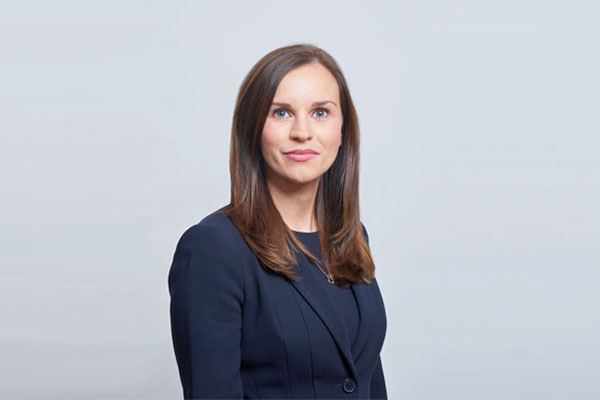Chemical & Pharmaceutical
INVENTIONS
Filing
We draft and file patent applications for new chemical inventions, ranging from pharmaceuticals to cosmetics to food products. Our clients range from small to medium sized enterprises to large multinational corporations. As a result of our wide variety of work, we are able to tailor our services to an individual client’s needs – no matter how big or small.
Prosecution
We have a vast amount of experience in obtaining patents not only in the UK and Europe but in countries across the globe from the Americas to Asia and everywhere in between, with the assistance of trusted patent attorneys in other jurisdictions. A detailed understanding of patent law across multiple jurisdictions helps us to assist our clients with preparing and executing global patent prosecution strategies in an effective manner.


Chemical & Pharmaceutical
Oppositions & appeals
Contentious Work
Our Oppositions and Appeals teams are also active in contentious matters, be that attacking or defending patents. The team has decades worth of experience in handling multi-party EPO oppositions and appeals, including collaborating with other opponents where advantageous, and effectively presenting arguments in the written and oral parts of the proceedings.
Freedom-to-Operate
In addition to securing patents for our clients, we also regularly advise on infringement risks arising from third party patent rights. We are able to conduct searches for relevant third-party patent rights that may be of relevance to our client’s commercial activities and advise accordingly on any infringement risks that we identify along with steps that can be taken to mitigate these risks.
Our specialist patent attorneys
Our UK and European Patent Attorneys and Chartered Trade Mark Attorneys have degrees and Ph.Ds from top UK Universities, but are qualified by experience at the coal face of cutting edge, and critically commercial, technologies.
Recent Insights
Read the latest insights from the Schlich team reporting recent cases relevant to the chemical & pharmaceutical sector.
Food for fork: stretchy cheese and contradictory post-filed evidence
T 0629/22 considered how the credibility of a claimed invention should be addressed in the face of contradictory evidence
Therapeutic Effect – a Higher Bar for Novelty than for Sufficiency at the EPO
EPO medical use claims are interpreted to include the physiological or technical effect of the treatment as being a functional feature of the claim. However, this interpretation yields different bars for novelty and sufficiency, as confirmed by EPO TBA Decision T 0209/22.
Clarity Once Again: The EPO’s Enlarged Board of Appeal Suggests the Current Test for Whether to Admit Post-Filed Evidence into Proceedings Should Stand
Following G 2/21, the referring board in the case underpinning that referral (T 116/18) established a test based on the principles set out by the EPO’s Enlarged Board of Appeal for deciding whether to admit post-filed evidence into proceedings. The opponent then filed a petition for review of that decision, rendering it unclear whether the new test would be upheld or overturned. The Enlarged Board has now issued its preliminary opinion on that petition, which strongly suggests the test established by T 116/18 will be upheld and the petition dismissed.
Back in the Maze: Is the Decision of the Referring Board in G 2/21 About to be Overturned?
When the referring board’s written decision was issued in the case underpinning the “plausibility” referral (G 2/21) late last year, it provided much-needed certainty about how the EPO would apply G 2/21 in the future. However, that certainty has been short-lived because the opponent in that case has filed a petition for review of the decision by the Enlarged Board of Appeal.
Generic Drug Manufacturers Protected by the “Skinny Label” provisions of the Hatch–Waxman Act
The US Federal Circuit has given a decision that blocks a potential form of “evergreening” that pharmaceutical companies might have used to prevent launch of generic versions of their drugs through asserting later-filed method-of-use patents for the drug.
The Maze of Plausibility Case Law: The Referring Board in G 2/21 Suggests a Way Through
When the EPO’s Enlarged Board of Appeal issued its decision in G 2/21 (the “plausibility” referral) earlier this year, many were left wondering what the requirements were for a patent applicant/proprietor to be able to rely on post-filed evidence in support of inventive step. The referring board in the case underpinning the referral (T 116/18) has recently issued a decision setting out its interpretation of G 2/21 in detail, offering new insight into how the EPO is likely to apply this important decision in the future.
EPO Enlarged Board of Appeal set to consider in G 1/23 the degree to which enablement impacts the status of a commercially available product as state of the art
Central to the assessment of patentability at the EPO is the definition of ‘state of the art’. Article 54(2) EPC defines the state of the art as ‘everything made available to the public’ before the effective filing date of a patent application. But when the thing made available to the public is a product with a defined chemical composition, how much of that composition is made available to the public by the simple disclosure of the product? G 1/92 provided an answer but as the current referral to the EPO’s EBA shows, there are gaps that need filing.
Not all epitopes are equal: patent rights in antibodies for challenging targets.
T0435/20 demonstrates the limit of obviousness of the “standard” procedure of generating antibodies for peptide epitopes. T0435/20 also serves to teach us that non-routine methods for generating antibodies for rare or “challenging” epitopes must be fully disclosed and apply to all of the antibodies that are claimed.
Get in touch

Our team of UK and European Patent Attorneys and Chartered Trade Mark Attorneys are highly knowledgeable and experienced in assisting clients with all aspects of their IP needs.
Contact us now to find out more about how we could help you and your business.













